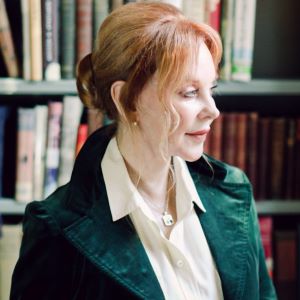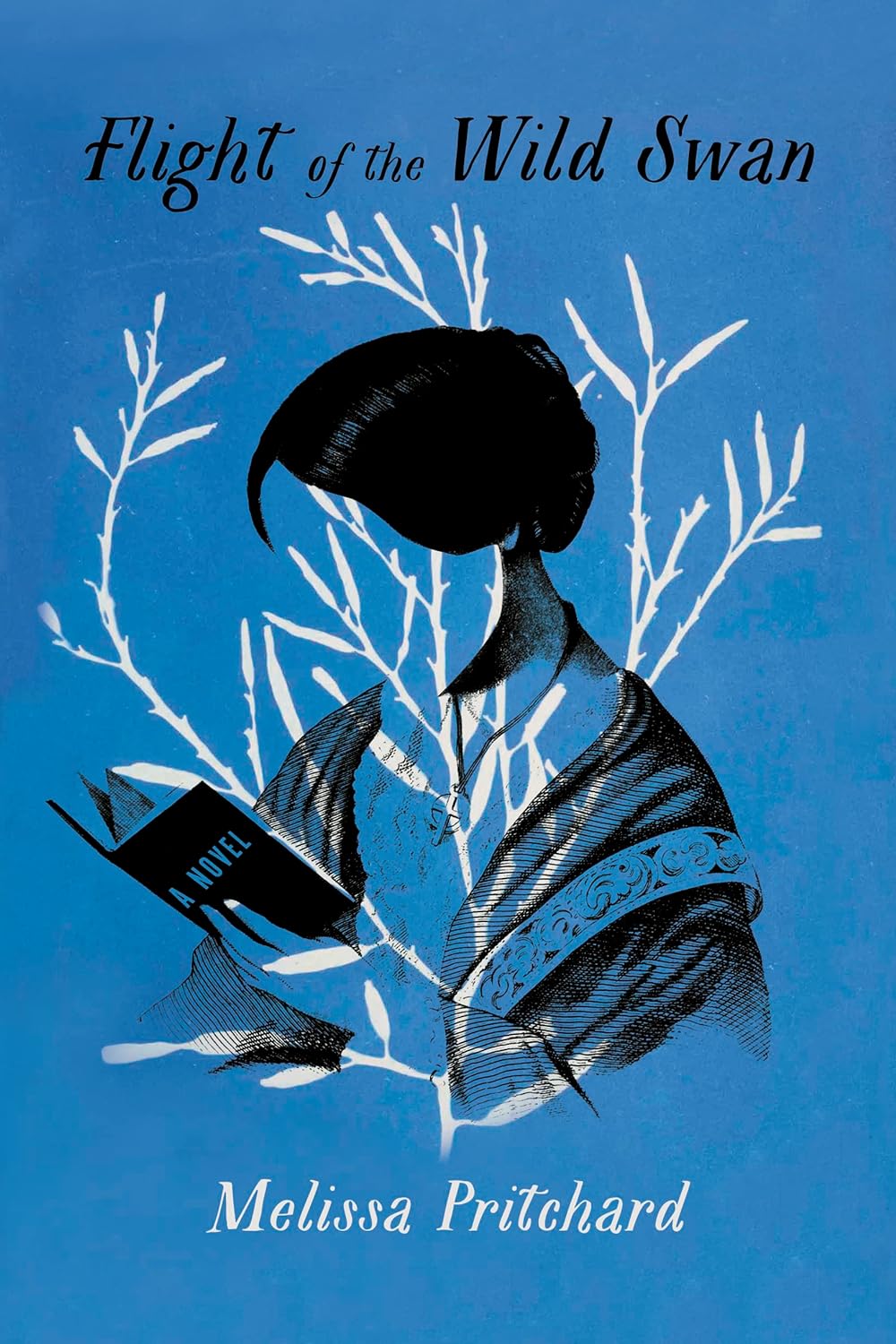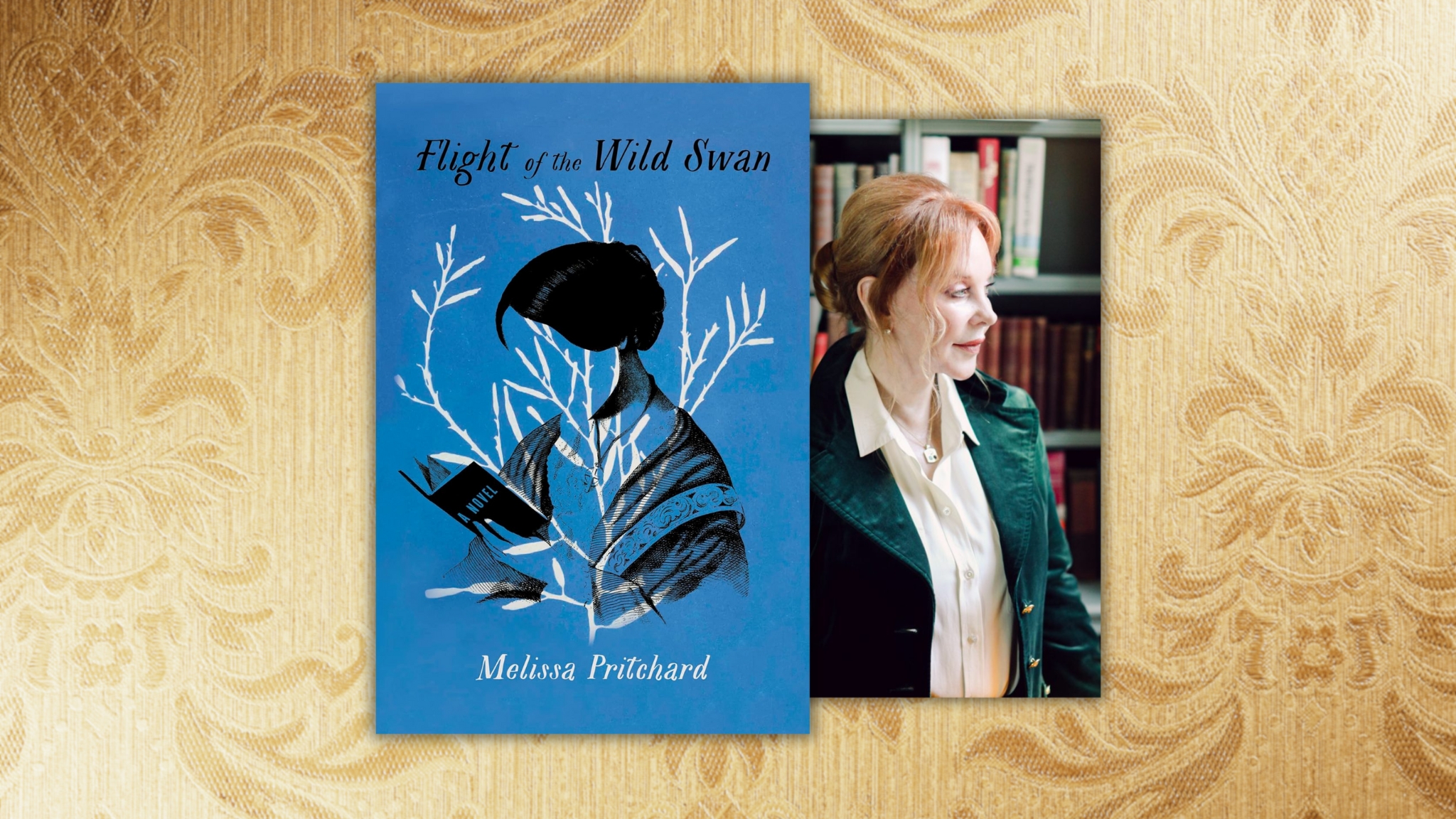Flight of the Wild Swan by Melissa Pritchard
What's It About?
A majestic novel of Florence Nightingale, whose courage, self-confidence, and resilience transformed nursing and the role of women in medicine“A writer at the height of her powers.”
That’s how Oprah.com described Melissa Pritchard, whose latest work, Flight of the Wild Swan, is a majestic novel about Florence Nightingale, whose courage, self-confidence and resilience transformed nursing and the role of women in medicine.
Sweeping yet intimate, Flight of the Wild Swan tells the story of a brilliant, trailblazing woman whose humanity has been obscured beneath the iconic weight of legend. From adolescence, Nightingale was determined to fulfill her life’s calling to serve the sick and suffering. Overcoming Victorian hierarchies, familial expectations, patriarchal resistance and her own illness, she used her hard-won acclaim as a battlefield nurse to bring the profession out of its shadowy, disreputable status and elevate nursing to a skilled practice and compassionate art.
In lush, lyrical detail, Pritchard reveals Nightingale as a rebel who wouldn’t relent — one whose extraordinary life offers a grand lesson in inspired will.
Writes three-term U.S. Poet Laureate Joy Harjo, author of Poet Warrior: A Memoir and Weaving Sundown in a Scarlet Light, “Flight of the Wild Swan is the best of Melissa Pritchard. It combines her exquisite ear for tone and detail in story, her gift of mystic perception, and her sense of the historic layering of human lives and the events that make our lives absolutely distinct. In this novel, you will come to know Florence Nightingale close up, not as a faraway, distant figure.”
“The novel’s brief scenes are both vividly intimate and wide-angled enough to capture the complexity of Florence’s life and times … Marvelous and moving,” says Publishers Weekly.
Check out Deborah Kalb’s interview with Melissa Pritchard below:
Why did you decide to write a novel based on the life of Florence Nightingale, and how did you research her life?
Stories and novels choose me. They begin with a haunting, insistent whisper. Write this. Tell this.
My mother gave me a series of children’s books, biographies of famous people. Most were of white men, inventors or conquerors. The story I loved most was Florence Nightingale’s. Years later, on a rainy spring afternoon in London in 2013, I walked into the Florence Nightingale Museum and found myself its sole visitor. Wandering through a labyrinth of exhibits, glass cases filled with hundreds of objects — letters, books, items of clothing, a wooden medicine chest, Florence’s beloved pet owl, preserved and fixed to a branch — I found myself fascinated by this wealth of “Nightingalia.”
Suddenly, I stopped, transfixed, before a portrait of Sir Sidney Herbert, Secretary of State for War. I had never heard of him, but a sense of recognition, an intuitive knowing, came over me as I studied his features. She knew this man. Knew him well. Friendship? Unrequited love? Sacrifice? Betrayal? I had no idea, but felt, looking at him, that I was being “called” to write about an icon, the triumphant, if slightly cold figure of Florence Nightingale.
I was being called to chip away at her bronzed myth, uncover the flesh and blood woman. In studying Sidney Herbert’s portrait, I had, with an explorer’s instinct, caught the scent, heard the whisper. I left the museum that day toting an unwieldy number of books purchased from the gift shop. It would be five years before I had time to read any of them.
What did you see as the right balance between fiction and history as you worked on the book?
With research, it’s always the same. Dive into collected materials — highlight, scribble in margins and notebooks, keep the process loose, fluid, intuitive. Research is detective work, sleuthing, staying alert to hunches, dowsing for currents, disturbances running beneath the facts. Facts are crucial navigational tools, research provides essential scaffolding.
When I write fiction about an historical person, a symbiosis occurs. I look for points of sympathy, empathetic connections. In Nightingale’s case, I, too, had repressive (protective) parents who did not understand me. I, too, ran up against patriarchal constraints, misogynistic condescension, a belittling of my ambitions. I, too, retain a strong if unconventional faith kept private from the world. I became Nightingale, or her pale shadow, even as I was aware I might be slightly false or off the mark. Who, with full accuracy, can reanimate the dead?
The poet Joy Harjo said of the book, “Flight of the Wild Swan is the best of Melissa Pritchard. It combines her exquisite ear for tone and detail in story, her gift of mystic perception, and her sense of the historic layering of human lives and the events that make our lives absolutely distinct.” What do you think of that description?
Joy Harjo’s statement about Flight of the Wild Swan is pure gift. That she touches on musical and spiritual references (“an exquisite ear for tone,” “gift of mystic perception,”) as well as calling attention to my awareness of “genius loci,” or spirit of place, is incredibly moving. Her generous quote gives the rare gift of feeling understood.
What do you think are some of the most common perceptions and misconceptions about Nightingale?
The most common, vague perception of Nightingale is that she had something important to do with nursing and carried a lamp about while tending to soldiers in a war hospital. Older women who recall having read, as I did, a child’s biography of Nightingale, remember her as a role model of brave compassion. Nurses recall learning about her in nursing school, some had taken the Nightingale Pledge, a variation on the Hippocratic Oath. I have also met young women who have never heard of her.
What nearly everyone does not know is that she was a complex person, a polymath and statistician, a social reformer, a designer of hospitals, a revolutionary for women nurses and least known of all, a visionary and mystic. She was the first female fellow of the Royal Statistical Society, the first to bring trained nurses and midwives into England’s notorious workhouses, and she spent decades working to improve sanitation and hygiene in India. These achievements, among her many others, are largely unknown today.
What are you working on now?
I’m torn between writing a crime novel set in the 1980’s or beginning another collection of short stories.
Anything else we should know?
With the current mental health crisis among adolescents, our broken healthcare system and a global shortage of nurses and midwives, I hope to re-introduce Florence Nightingale as a relevant example of scientific intelligence and dedication to the well-being of those who suffer. Complex, imperfect, assailed with self-doubt — in other words, deeply human — Nightingale still surmounted obstacle after obstacle. In a profoundly patriarchal age of racism and male privilege, at the height of British imperialism, she fought to improve the lives of soldiers, the sick, the poor. I find her a supreme inspiration, a timely role model, and hope others will, too.
 About Melissa Pritchard:
About Melissa Pritchard:
Melissa Pritchard is the author of twelve books, including the novels Flight of the Wild Swan and Palmerino, the short story collection The Odditorium, and the essay collection A Solemn Pleasure: To Imagine, Witness, and Write. Among other honors, she has received the Flannery O’Connor Award, Janet Heidinger Kafka Prize, and Carl Sandburg Literary Award as well as fellowships from the National Endowment for the Arts and the Carson McCullers Center. Emeritus Professor of English and Women’s Studies at Arizona State University, she is the fiction editor for Image journal and lives in Columbus, Georgia.





